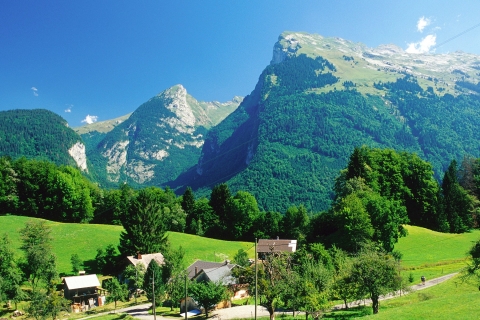Maurs Weather and Climate: A Comprehensive Guide
The climate in Maurs is marked by big temperature swings throughout the year.
Temperatures range from warm during the warmest months
to cold in the cooler months.
It also has a notably wet climate with much precipitation.
Now, let’s explore all the climate details to give you a full picture.
Average maximum day and minimum night temperature
In Maurs, temperatures differ significantly between summer and winter months. Average maximum daytime temperatures range from a comfortable 27°C in August, the warmest time of the year, to a chilly 9°C during cooler months like February.
At night, temperatures typically drop to an average of around 1°C during these months. Check out our detailed temperature page for more information.Temperature ranges by month
Precipitation and rainy days
Maurs experiences significant rain/snowfall throughout the year, averaging 1198 mm of precipitation annually. Year-round, Maurs has a balanced climate with minimal variation in precipitation. The difference between the wettest month, April, with 117 mm, and the driest month, July, with 73 mm, is minimal.The mean monthly precipitation over the year, including rain, hail and snow
broken clouds and no rain almost clear and no rain clear and no rainForecast for Maurs
The best time of year to visit Maurs in France
During the months of May, June and September you are most likely to experience good weather with pleasant average temperatures that fall between 20°C and 26°C.Other facts from our historical weather data:
August has an average maximum temperature of 27°C and is the warmest month of the year.
The coldest month is February with an average maximum temperature of 9°C.
April tops the wettest month list with 117 mm of rainfall.
July is the driest month with 73 mm of precipitation.
No idea where to travel to this year? We have a tool that recommends destinations based on your ideal conditions. Find out where to go with our weather planner.




